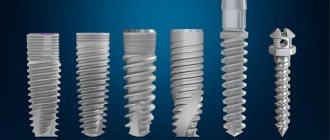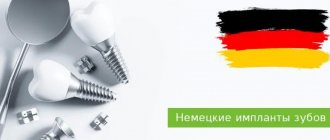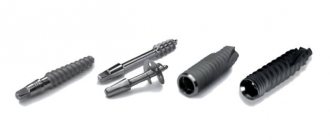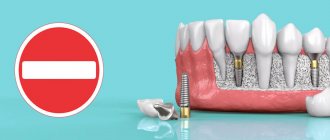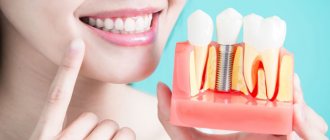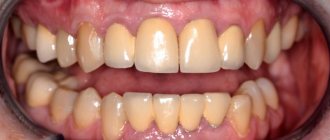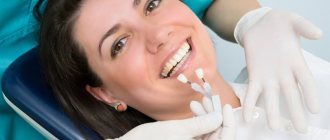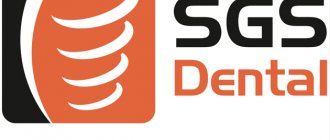The ranking of the top 10 dental implants by manufacturer in 2021 will help you choose the best implants for installation. Our specialists will select and install the best implants in your specific clinical case.
There is currently a wide range of implant systems on the market, and many patients are faced with the difficult choice of finding the right system among the variety of products available. Often the determining factor is the cost of a dental product, which forces a person to take risks - to get a low-quality, unreliable and short-term result.
Elident Dentistry deals with both elite dental systems and more budget-friendly analogues that have identical quality and decent performance characteristics. In addition, our clinic uses modern high-precision technology, implements the latest technological solutions and employs specialists with extensive experience in the field of implantology, which provides an absolute guarantee of a prolonged and reliable result.
Next, we will try to figure out whether budget systems are really inferior to premium ones in terms of aesthetic and functional parameters, as well as duration of use. We hope that after reading the material below, you will be able to make the right choice and find a system that suits you.
Dental implant companies and manufacturing countries
Today, there are a number of manufacturing countries that occupy a prominent place on the implantology map. Dental implant companies located in these countries produce about 90% of the total number of implants on the market. If you go to the website of any dentistry, then in the “implantation” section you will probably see countries such as the USA, Switzerland, Germany, Israel and Korea. Most ordinary people do not know how this or that implant differs, but at the same time, any sane person realizes that a two- or three-fold difference in price should imply at least some differences. That is why the question: “Which brand of dental implants is better?” – asks most patients. It is difficult to answer this unequivocally, because each clinical case may have its own recommendations and limitations. Below is a rating of dental implants by manufacturers from different countries, which will help you understand the variety of systems, their advantages and disadvantages.
How is the price of implantation determined?
The final price of implant-supported prosthetics includes all treatment costs - the protocol used, the type of implantation system, the method of dentures, the material of the orthopedic structure, additional interventions (osteoplasty, sinus lift, gum surgery, etc.). The doctor decides which dental implant is best to place based on the clinical picture.
The network of RUTT clinics in Moscow uses a case pricing mechanism (turnkey). This includes all stages of treatment - from preparation of the oral cavity, to control examinations, production and installation of temporary dentures. The ROOTT implant system comes with a lifetime warranty .
Swiss dental implants
Switzerland is often associated with the production of cheese and watches, but implantation can also be added here. It is this country that produces the highest quality, most expensive and well-known brands of implants. We are talking, first of all, about Nobel Biocare and Straumann. They have the highest survival rate (99% and above) and the best technology. It is Swiss implants that allow you to obtain ideal aesthetic and functional results even in the most difficult cases. The majority of clinicians in the world prefer to work with Swiss manufacturers, many of whom are real luminaries of implantology. By the way, to use the capabilities of these systems 100%, you need to be really high-level specialists. Now about the less pleasant moments. The cost of implants from Switzerland is the highest on the market. On average, for the installation of Nobel Biocare or Straumann implants alone, you will have to pay 45–50 thousand rubles. Add to this cost the cost of prosthetics, and you will get a sum close to 100 thousand.
Swiss dental implants Nobel Biocare
American dental implants
The most popular American dental implants are Bicon, Biohorizon, as well as implants from the Denstply concern. If the first two systems can be considered local developments, then Dentsply is a slightly different story. A huge holding company, which has been selling dental equipment since its founding (and this is 1899), at some point wanted to enter the implantology industry. The company did not start from scratch and invest huge amounts of money in developing its own technologies, but simply gradually acquired several good European manufacturers with all the staff and developments. We are talking about Ankylos (Germany), Xive (Germany) and Astra Tech (Sweden). The most successful was the purchase of Astra Tech, which was in the top 3 and occupied about 30% of the implantology market. Despite the merger with Dentsply, all acquired companies retained their brand and continue to produce implants under it.
Americans are excellent businessmen who have taken marketing and PR in dentistry to a whole new level. At the same time, American dental implants also mean quality, high survival rate and reliability. On average, you will have to pay 30–35 thousand rubles for American-made implants (BioHorizons, Ankylos, Xive), and the elite Astra Tech will cost 40–45 thousand.
Bicon line of American dental implants
US made systems
America stands out in almost all areas, and implantology is no exception. Biohorizon and Bicon products are considered to be US developments. The rest of the American implants were developed by specialists from other countries. Today, the United States owns several of the largest European companies, including the Swedish Astra Tech. This allowed the Americans to take their rightful place in the world market. The systems are also expensive; of course, they are a little more affordable than Swiss ones, but not cheaper than German ones.
German dental implants
Germany is also one of the most famous manufacturers of dental implants. Having started their activity mainly in the 80s, German implant manufacturers have established themselves with excellent product quality and successful developments, which subsequently contributed to the merger with American concerns. Today Germany is represented by SHUTZ, Xive, Ankylos, Impro, and other lesser-known systems. All of them are close to the top segment, have a good line of implants and orthopedic solutions. Precision and scrupulousness are valued all over the world, which is why German dental implants have many fans among specialists.
German-made dental implants cost an average of 30–35 thousand rubles, which puts them on par with most American-made implants. Ankylos will cost a little more (about 40 thousand) - a system whose characteristics are closest to the luxury class.
Line of German dental implants Zimmer
Korean dental implants
In the 90s, the field of medicine and dentistry became one of the priorities for the Korean economy, which allowed the country to become one of the leading suppliers of dental equipment. In the production of implants, Korea represents the budget category, and the most famous Korean dental implants are Osstem and Implantium. The advantages (besides the price) include a very wide range of models and good survival rate. They are quite popular on the Russian market, especially in the Far Eastern region of our country. However, some experts believe that these implants are not intended for all clinical cases and are inferior to top-end systems in terms of achieving an aesthetic result. Today, the price of Korean dental implants averages about 20 thousand rubles, which is quite good, considering their quite acceptable quality.
Line of Korean dental implants
Israeli dental implants
Together with Korean implants, Israel occupies an economy class niche, and the Alpha Bio and MIS systems (especially the first) are very popular in Russia. This is not only due to price: the manufacturer invests significant sums in promoting its products. Israeli dental implants are very reliable, are well suited for restoring the chewing part of teeth and do not require the clinician to have any outstanding skills. In general, reviews of Israeli dental implants are very positive. However, there are also weak points.
Many clinicians note the lack of wide possibilities in prosthetics, which inevitably affects aesthetics.
The price of Israeli dental implants is very attractive. For 17–20 thousand, clinics offer installation of a titanium root, and turnkey implantation will cost an average of 40 thousand rubles. If lesser-known Israeli systems are used, the price will be even lower.
Israeli dental implant MIS
How do implants differ from each other?
In order for the installation of a dental implant to be successful, the doctor must take into account the age, medical status of the patient, the volume and condition of the bone tissue at the site of implantation. Based on these factors, he selects the surgical technique and recommends implants that have a higher chance of survival.
When choosing dental structures, the implantologist takes into account:
- what material they are made of (pure medical titanium or alloys, bioceramics);
- shape (cone or cylinder);
- surface type;
- thread type.
Materials
Economy class dental implants are made from an alloy of titanium with aluminum and vanadium. By adding aluminum and vanadium, manufacturers reduce the cost of products, but due to these impurities, the implant fuses more slowly with the jaw bone tissue. If the patient is young and does not have bad habits or chronic diseases, this has almost no effect on the survival rate of the structure, but the duration of the postoperative period increases. Many patients are willing to undergo treatment a little longer, but cheaper.
If the patient is over 50 years old, has minor abnormalities in the blood composition, or other diseases that are not absolute contraindications to dental implantation, the cost of prosthetics should not be a decisive factor. In such patients, the speed of implantation is reduced, and further slowdown increases the risk of rejection of the structure and the development of inflammatory processes. It is more expedient for them to install more expensive products made of titanium purified from impurities or an alloy of purified titanium with zirconium dioxide. These materials are used by manufacturers Straumann, NobelBiocare, AstraTech, Osstem.
The Straumann company also produces structures from bioceramics. They contain no metals. They can be installed in patients who already have bridges made of different metals or with allergies to metal or certain diseases (leukoplakia). When implanting bioceramic products, microcurrents do not form in the oral cavity.
Bioceramic dental implants, the prices of which are higher, are recommended for prosthetics of incisors and canines, which are visible when talking or smiling. With age, atrophy of the jaw bone tissue occurs, and the implanted structure is covered only by the mucous membrane of the gums. With constant contact with metal, it acquires a bluish tint. When in contact with bioceramics, this effect does not occur, and the gums under the implants and living teeth have the same color.
Surface
The survival rate and comfort of implants is influenced not only by their shape and the material from which they are made, but also by the method of surface treatment. The forms of dental structures are developed by large manufacturers, and smaller ones copy them. It is more difficult to copy the method of surface treatment: some technical solutions are not disclosed, others are known, but their repetition increases the cost of production and the price of dental implants.
The first stage of surface treatment for all manufacturers is sandblasting. It makes the surfaces rough, which improves the exchange of molecules between the implanted product and bone tissue and accelerates their fusion. But different manufacturers use different processing technologies. For economy-class implants, alumina is used, but after contact with it, impurities remain on the surfaces, which impair survival. More expensive designs are treated with titanium oxide.
The second stage is acid etching. When acid hits metal or bioceramic surfaces, it forms micropores ranging in size from 3 to 10 microns. If the implant has been acid etched after sandblasting, it is marked SLA. Manufacturers who limit themselves to the first stage only label their products with RBM.
Acid etching increases survival rate by 20-30% compared to products that have undergone only sandblasting. The primary stability of the structure increases and the risk of its rejection in the first days after implantation is reduced. On surfaces with micropores of 3-10 microns (the size of the pores varies from manufacturer to manufacturer), cells responsible for the growth of bone tissue multiply more actively. The area of contact between the implant and bone tissue increases. The larger the surface area, the more actively the splicing takes place and a stronger connection is formed.
Sandblasting is performed by most manufacturers, and many supplement it with acid etching. But this treatment gives the surfaces hydrophobic properties. They slow down survival and increase the risk of failure. To overcome this disadvantage, manufacturers use negatively charged ultra-hydrophilic SLA surfaces. Additional processing accelerates the deposition of fibrin threads, and the structure fuses with the bone faster.
Another way to improve the characteristics of implants is to treat the surfaces under pressure with phosphorus, calcium phosphate, and fluoride ions. These substances activate the growth of bone tissue around the dental structure and accelerate its growth into metal or bioceramics. Reducing the implantation period reduces the risk of rejection. Before prosthetics, you do not need to wait 3-6 months to obtain a strong connection; it can be done in 2-4 weeks, and in some cases, immediately after implantation.
Russian dental implants
Dental implants are also produced in Russia, although few people know about it. For example, there are IRIS implants - an improved LIKO-M system, which appeared more than 20 years ago. IRIS is produced in Italy using Russian technology and has an international certificate of ISO 9001-2000.
The abbreviation IRIS stands for Innovative Russian Dental Implant System Liko-M. Implants are made from pure GRADE-4 titanium. Premium implants from Nobel Biocare, Astra Tech, Straumann are made from the same material.
The first implant was developed in 1995 by a team of scientists led by Doctor of Medical Sciences, Professor, Corresponding Member of the Russian Academy of Sciences Sergei Yuryevich Ivanov. The scientific basis of the Iris Liko-M system is 55 dissertations defended under his leadership.
What is an implant and implantology?
Implantology is a fairly young area of dentistry, which originated in the middle of the last century, as a result of the engraftment of titanium into bone tissue, better known as osseointegration.
This is interesting! The world's first operation to implant a titanium root was performed by the Swiss under the leadership of Professor Ingvar Brånemark.
The rapid development of this technique led to the fact that at the end of the 80s of the 20th century the whole world knew about it.
So, an implant is an artificial root consisting of titanium, which is screwed into the bone tissue. It quickly takes root in the place of the missing tooth due to the unique properties of the metal.
A tooth with an implanted root consists of three parts:
- directly the implant itself;
- crowns;
- abutment.
It is worth noting that, if necessary, the abutment, which is a connecting element, can be changed, as well as the crown. Whereas the implant is screwed into the bone tissue forever, thus solving the problem of millions of people who suffer from missing teeth.
- Complete restoration of the dentition in just 4 days!
more detailsRoott Pterygoid Implants Sinus lift is no longer needed!
more details
Once and for life! Express implantation in 4 days with a permanent ReSmile prosthesis
more details
All-on-4, All-on-6, ReSmile, Zygomatic implantation We use all modern methods of dentition restoration
more details
How important is the manufacturer of a dental implant?
In conclusion, I would like to note that the brand certainly influences the cost of the implant, but it is naive to think that you are paying such large sums just for the name. Top implants offer the broadest possible options for both the patient and the clinician. None of these systems compromise between functionality and aesthetics: it allows you to solve the patient's problem and give him a beautiful smile, even in difficult clinical situations in which a budget system could not perform in the same way. However, economy class systems today are of very high quality and, for certain indications, can become a worthy alternative to more expensive analogues.

